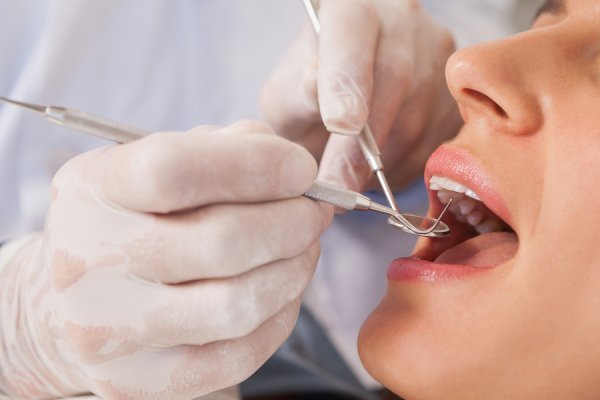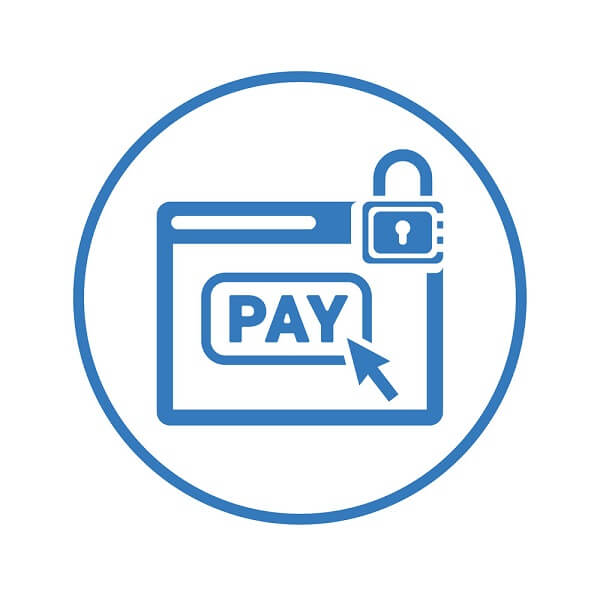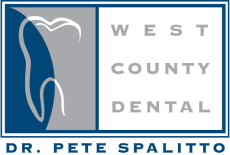-
Acid Reflux & Tooth Decay
You know that chewing is the first step in the digestive process, but did you know that your digestive health can have an impact on your teeth? If you have acid reflux, it could be eroding your tooth enamel. Once it wears away, enamel can’t be restored. However, you can take action before it happens to protect your teeth.
Before we get into that, let’s talk about why enamel erosion happens in the first place. If you’ve got acid reflux, you know it’s very uncomfortable. Symptoms of acid reflux, also known as gastroesophageal reflux (GERD), include chest pain and heartburn. These symptoms occur because acid produced by the stomach has washed back up into the esophagus. That same stomach acid can reach your teeth and wear away their enamel. Strong enamel protects your teeth against pain and sensitivity, but when that enamel erodes, your teeth become vulnerable to tooth decay and cavities.
Acid reflux is not the only thing that can erode your enamel. Too much sugar, acidic foods, heavy drinking, brushing too hard, and tooth grinding are among the other culprits. GERD is probably the most damaging of all, so take these steps to protect your teeth:
- Work on getting your acid reflux under control. Work with your doctor to determine the best way to do this. Your plan may include things like losing weight, eating fewer acidic foods, having smaller meals, sleeping propped up, quitting smoking, and limiting your alcohol consumption.
- Change the way you eat and drink. This starts with cutting back on acidic foods like soda, citrus, and even tomato sauce, but that’s just the beginning. You can also protect your enamel by not eating within three hours of bedtime and drinking through a straw. Never brush immediately after a meal, because that can be erosive. Instead, swish water around your mouth after you eat or have a piece of cheese or glass of milk to finish your meal and neutralize the acid.
- Drink plenty of water. This keeps damaging substances from staying on your teeth and can also lessen dry mouth.
- Chew some gum. Chewing sugar free gum can increase saliva production, which strengthens your teeth and helps protect them against erosion and decay.
- Choose a fluoride toothpaste formulated for sensitive teeth. Talk to your dentist about your best options for toothpaste and mouthwash.
- See your dentist regularly. Seeing the dentist every six months is something everyone should do, but it’s particularly important for people with acid reflux. Your dentist will notice any tooth erosion and can help you keep your teeth healthy.
At West County Dental, we provide personalized family dental care using state of the art procedures. Adhering to a standard of excellence, we provide comprehensive treatment, from preventive care to restorative dentistry. When you reserve a visit with West County Dental, you can be confident that our team of highly-trained dental professionals will provide you the care you need for a healthy smile. Call (314) 488-2921 or contact us through our website today!
-
The Signs of Periodontal Disease

Periodontal disease, or gum disease, is a condition that can result from poor oral hygiene and infrequent visits to the dentist. If left untreated, it can cause serious dental problems, and can even require tooth extraction. To prevent periodontal disease from developing, you must practice excellent oral hygiene at home, and visit your dentist regularly for professional dental care. If you’re concerned that you’re suffering from periodontal disease in St. Louis , keep reading to learn about the signs and symptoms.
Tender, Red, Inflamed Gums
The first symptoms of gum disease can be tenderness, redness, and inflammation of the gums, but another sign is when the dentist measures your gums they find bleeding. This occurs due to poor oral hygiene. Brushing and flossing regularly removes harmful plaque and bacteria from your mouth. If you don’t practice good dental care, the plaque on your teeth hardens into tartar. Tartar harbors harmful bacteria that can cause painful infections in the gums. Once you have tartar buildup, it can only be removed by a visit to a dentist near you for a professional teeth cleaning. Be aware that pain isn’t always a sign of periodontal disease, which is why it’s important to see your dentist so he can look for bleeding when measuring your gums.Gingivitis
If tartar is not removed, you may develop a condition called gingivitis. Gingivitis is a mild form of gum disease, and dentists consider it the precursor to full periodontal disease. If you have symptoms of gingivitis, such as bleeding gums, intensely bad breath, sores in your mouth, or pus between your gums and teeth, you should visit a dentist immediately. When caught early enough, a dentist can offer treatment that prevents gingivitis from progressing into gum disease. Gingivitis is also not always associated with pain, which is why it is important to have regular visits to the dentist. Don’t wait for something to hurt!Receding Gums and Tooth Pain
In the final stages of gum disease, you’ll experience receding gums and tooth pain. As the infection in your gums spreads, it causes the gums to begin pulling away from your teeth, forming loose pockets. This may change the way your dentures fit, and can cause your natural teeth to lose proper support and structure. Without treatment, you’ll experience bone loss and tooth loss. A severe case of periodontal disease necessitates tooth extraction. Your dentist will then have to replace your missing teeth with dentures or dental implants.You feel you may be at risk for periodontal disease, come visit Dr. Spalitto at West County Dental!
RECENT POSTS
categories
- Uncategorized
- crowns
- dental veneers
- dentists
- full service dental practice
- porcelain veneers
- same day crowns
- Dental Cosmetic Surgery
- Dental Implants
- Dentistry
- Dentist Review
- Laser Dentistry
- Root Canal
- Sedation Dentistry
- Dentures
- Cleanings
- Teeth Whitening
- Abscessed Teeth
- Cosmetic Dentistry
- Infographic
- Cavities
- Sealants
- Gum Recession
- Periodontal Disease
- Dental Health
- Family Dentistry
- Dental Emergency
- Invisalign
- Filling
- Same Day Dental Procedures
- Gum disease
- Sleep Apnea
Archives
2022
2021
- December (2)
- November (1)
- October (3)
- September (2)
- August (2)
- July (2)
- June (2)
- May (2)
- April (2)
- March (2)
- January (2)
2020
2016
2015
- December (4)
- November (3)
- October (3)
- September (4)
- August (4)
- July (4)
- June (4)
- May (3)
- April (3)
- March (4)
- February (5)
- January (6)

